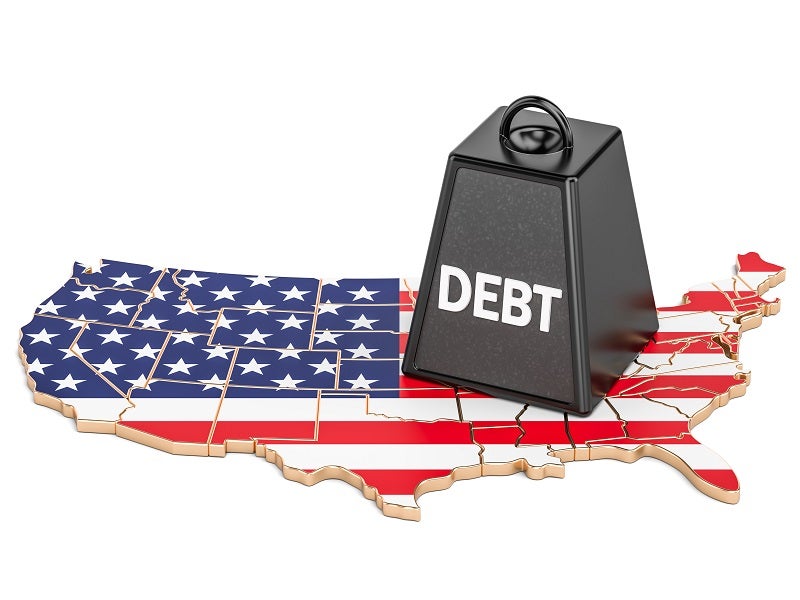The US recorded the largest budget deficit in its history in June owing to the stimulus packages released to manage the impact of the Covid-19 pandemic. Equity markets are forecast to remain flat and infection rate continues to rise casting doubts on the duration of pandemic-induced recession, macroeconomic influencers share their views on the Covid -19 impact.
Jon Matonis
Jon Matonis, chief economist at Cypherpunk Holdings, shared an article on how the US printed more money than in the first two centuries since its founding. The US had a budget deficit of $864bn in June, which is larger than the total debt incurred between 1776 and the end of 1979.
The article notes that the government should tackle the deficit by moving away from paper money to bitcoin, as there is no inflation or hyperinflation associated with the cryptocurrency. A decentralised financial structure in which everyone can participate at a very low cost is needed, the article added.
"The United States printed more money in June than in the first two centuries after its founding. Last month the U.S. budget deficit — $864 billion — was larger than the total debt incurred from 1776 through the end of 1979." #Dollar #Collapse #Bitcoin https://t.co/n6u4dB09db pic.twitter.com/yfqKq5HPVb
— Bitcoin Woods (@Bitcoin_Woods) August 3, 2020

US Tariffs are shifting - will you react or anticipate?
Don’t let policy changes catch you off guard. Stay proactive with real-time data and expert analysis.
By GlobalDataDaniel Lacalle
Daniel Lacalle, an economist and author, shared an article on the forecast on equity markets made by Goldman Sachs. The article notes that the equity markets are expected to remain ‘fat and flat’ due to the lower returns and market volatility. Although stock markets have returned to normal levels, bond yields and real yields are declining leading to lower returns for investors.
Analysts at Goldman Sachs, however, see recovery for growth stocks and purchasing managers’ index is pointing towards growth.
Equity markets could be stuck in 'fat and flat' range, Goldman Sachs says https://t.co/Oif3nVSG4W
— Daniel Lacalle (@dlacalle_IA) August 4, 2020
Jonathan Davis
Jonathan Davis, a wealth adviser and economist, shared an article on how the new lockdown restrictions imposed in Melbourne are expected to prolong Australia’s recession until the end of the year. Australia recorded two consecutive quarters of negative growth and the fresh lockdowns may lead to another quarter of negative growth.
NAB chief economist Alan Oster in the article notes that the current recession is worse than that witnessed in the 1980s and 1990s. The biggest impact is expected to be on Victoria, which accounts for a quarter of the country’s GDP. The impact on the construction sector in Victoria may further prolong the recession into the third quarter.
The fresh Melbourne lockdown means the coronavirus recession will make both the early 90s and early 80s recessions "look like child's play" according to veteran NAB chief economist Alan Oster, who worked through both https://t.co/D87w6Unsvj Great feature by @PhillipLasker.
— Michael Janda (@mikejanda) August 3, 2020
Colin Williams
Colin Williams, professor of public policy at University of Sheffield, shared an article on the possibility of second wave of Covid-19 infections in France. The government’s scientific council has already noted a second wave is highly likely. Although the pandemic is currently under control, the situation could change any time.
The new warnings were issued followed spike in cases over the last few weeks. Despite strict lockdowns, infections are rising in several European countries including France. Germany is already in a second wave as people are not following social distancing rules.
Global report: France 'could lose control of Covid-19 at any time' #COVID19 #COVID #Covid_19 #coronavirus https://t.co/fDQNp3pc8x
— Colin Williams (@Colin_CWilliams) August 4, 2020
James Picerno
James Picerno, editor at US Business Cycle Risk Report, shared an article on BP’s plans to cut dividends due to decline in sales of fossil fuels.
BP plans to increase its investments in low-carbon technology by ten times to $5bn a year over the next ten years. The cut in dividends is part of this shift in investment. The move will also help the company to achieve its net zero carbon emissions goal by 2050 or sooner.
Picerno noted whether this move by BP signalled the end of rich dividend payouts from big oil companies.
https://twitter.com/jpicerno/status/1290650301431676928




